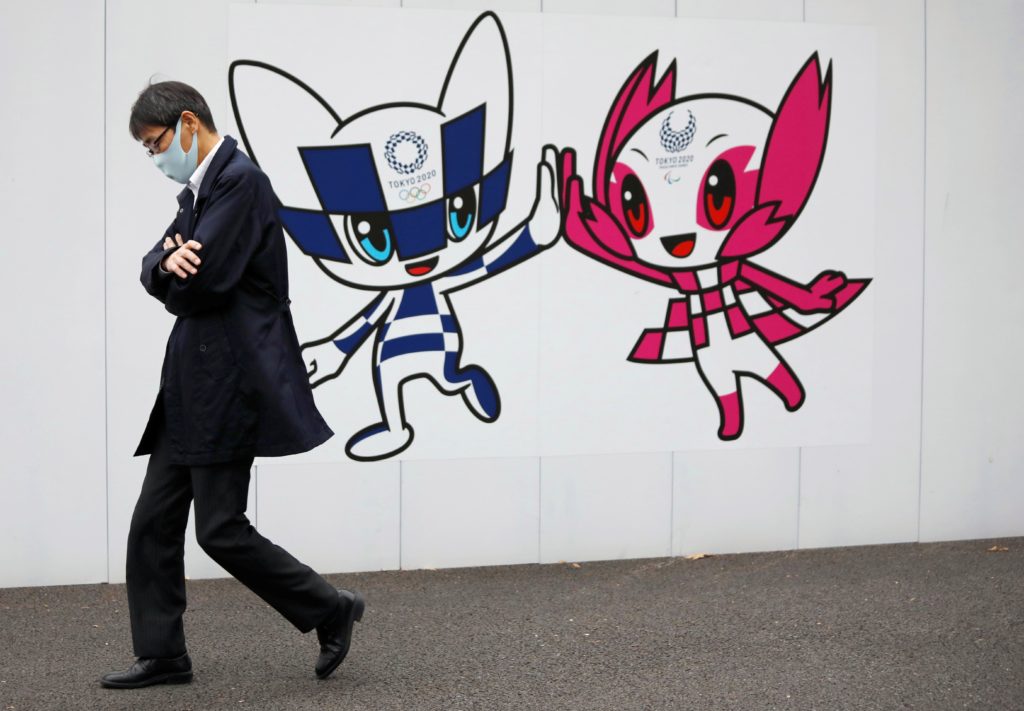Will the Tokyo Olympics actually take place this year?
It would be unprecedented to simply skip the 2020 edition of the Olympics. But these are unprecedented times. …


A top Japanese official muttered darkly last year about an Olympics “curse,” as it became ever clearer that the host of the Summer Olympics would have to postpone the 2020 games to this year. Now, with Tokyo’s rising coronavirus infection numbers pushing it into a new state of emergency, and public support staunchly against holding the games, it’s reasonable to wonder if they will actually take place even in 2021.
The games were originally supposed to be held from July 24 to Aug. 9, 2020, but were postponed after several countries said they would not send their athletes to Japan in the midst of a pandemic. The country had hoped to attract 40 million tourist arrivals last year as hosts; it will now barely cross the 4 million mark for 2020—tourist levels it has not seen since1998. After the decision last March to delay them, the games are set to begin on July 23, followed by the Paralympics on Aug. 24.
Given the importance of the games to Japan, and the amount it’s spending—the one-year delay sent costs soaring by nearly $3 billion to $15.4 billion—it might seem unthinkable that the International Olympics Committee and Japan would even consider more changes—let alone an outright cancellation. In fact, as vaccines raced toward the finish line and were approved in several countries in December, and some areas with low case counts experimented with holding in-person sporting events, optimism about the chance of holding a large in-person event like the Olympics was growing.
Olympics chief Thomas Bach, making a visit to Japan in November to look at the simplified preparations for roughly 11,000 athletes, even expressed the hope that some spectators might be able to attend. Officials spoke of hosting test events involving foreign athletes in May.
But 2021 has started with some wild cards, namely coronavirus mutations that appear to make the virus more transmissible. That has resulted in a fresh wave of lockdowns, travel restrictions, and uncertainty. Suddenly, the new year is starting to feel a lot like the early months of 2020.
Coronavirus infections started surging in November in places where winter was setting in, including in Japan. In some cases, as in the UK and South Africa, increased infections have been linked to mutated strains of the virus. Japan, which began allowing some foreign travelers in October—though not tourists—again tightened up travel rules, and last week announced a monthlong state of emergency for Tokyo and adjacent areas.
Public opposition to the games has increased as infections have risen. In November, around when Bach visited, about 60% of respondents to a TV Asahi poll wanted the games postponed again or canceled, Reuters reported. A new poll published by Kyodo News yesterday found that figure had risen to 80%, as the public mulls the health impact of thousands of athletes arriving from around the world. Olympics chief Bach had said in November that plans would made to vaccinate everyone arriving—but not that it would be mandatory.
And Japan’s proposed safety measures for tourism, which it was tentatively aiming to restart from April, also seem potentially too relaxed. The plan included testing visitors prior to boarding and on arrival, and then having them download a contact-tracing app, which they would update daily in lieu of undergoing a quarantine. A final decision on whether to allow spectators is yet to be taken.
The country is also dealing with a high level of hesitancy around vaccines. Japan plans to inoculate about 10,000 health workers in late February, and then move on to senior citizens in March, but in one poll more than a third of those surveyed said they didn’t want to take the vaccine.
Taken together, these concerns could potentially deter athletes from visiting—and the country from welcoming them.
The murmurs of hesitancy that preceded last year’s postponement are already beginning. Last week Richard Pound, a Canadian member of the International Olympic Committee, said he couldn’t be certain the games would go ahead as planned, explaining to the BBC that “the ongoing elephant in the room would be the surges in the virus.”
The Tokyo organizing committee didn’t immediately respond to a request for comment.
If these games are canceled and not rescheduled, it would be the third time the games didn’t happen when Japan was supposed to host. Back in 1940, when Japan won its bids to host the summer and winter games, both those Olympics ended up canceled because of World War II. Japan eventually went on to host the summer Olympics in 1964.